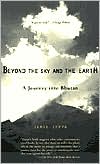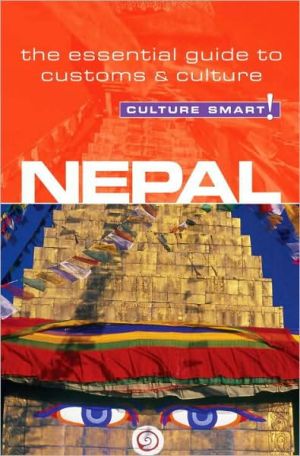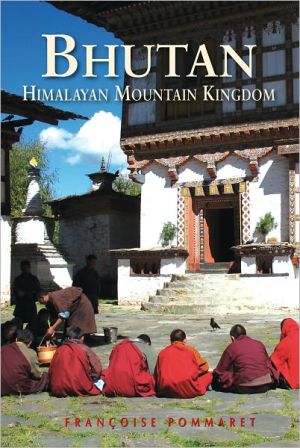The Violet Shyness of Their Eyes: Notes from Nepal, Revised Edition
Cultural Writing. Travel. Memoir. Revised Edition 2005. Ranging across mountains and memories, Scot's classic journal of her experiences in Nepal in 1990 is now published in a revised edition that includes reflections on a return trip in 2004. "Scot's year in Nepal was extraordinary. What she discovered about herself, about Nepal and the Nepalis is beautifully told"--Seattle Times. "THE VIOLET SHYNESS OF THEIR EYES will enter your heart, and stay"--Margaret Randall.
Search in google:
Beautifully written mid-life travel memoir vividly reveals Nepali culture with revisions updated to 2004 Nepal. Publishers Weekly A sudden mid-life crisis in 1990 prompted high school social studies teacher Scot to leave Portland, Ore., for a stint teaching English in Nepal. The brief entries in this diary interweave her experience of Nepalese society, including the inferior status of Nepali women, with memories of what she describes as ``a male-dominated childhood with no men,'' her father having left home when she was an infant. Although occasionally the analogies Scot draws are forced or disjointed, a sincere and generous tone strengthens the writing, and sometimes her observations are uncommonly just, as when she notes how her difficulties with the Nepali language have brought greater understanding of her son's struggle with dyslexia. Stories of culture shock are less revealing, such as the stilted dinner party at which Scot's roommate served spaghetti for their native neighbors. The most amusing anecdotes come out of Scot's attempts to assist a Nepali man in studying for the standardized Test of English as a Foreign Language (TOEFL), which involves listening comprehension of passages on topics like ordering the house dressing in a restaurant and the uses of Muzak. Photos. (Nov.)
IOn the road to Kathmandu1IIIn another country17IIIChhori Chhaina? : (you have no daughters?)39IVThe god in you67VIn the gaze of the sacred mountain91VIThe climb to the Mardi Himal123VIIThe house where God lives143VIIITrekking to Tengboche with Dorothy and the Lama173IXThe violet shyness of their eyes203XThe golden hoop with the heavy-sided rim241Epilogue : return to Kathmandu - April 2004261
\ Publishers Weekly - Publisher's Weekly\ A sudden mid-life crisis in 1990 prompted high school social studies teacher Scot to leave Portland, Ore., for a stint teaching English in Nepal. The brief entries in this diary interweave her experience of Nepalese society, including the inferior status of Nepali women, with memories of what she describes as ``a male-dominated childhood with no men,'' her father having left home when she was an infant. Although occasionally the analogies Scot draws are forced or disjointed, a sincere and generous tone strengthens the writing, and sometimes her observations are uncommonly just, as when she notes how her difficulties with the Nepali language have brought greater understanding of her son's struggle with dyslexia. Stories of culture shock are less revealing, such as the stilted dinner party at which Scot's roommate served spaghetti for their native neighbors. The most amusing anecdotes come out of Scot's attempts to assist a Nepali man in studying for the standardized Test of English as a Foreign Language (TOEFL), which involves listening comprehension of passages on topics like ordering the house dressing in a restaurant and the uses of Muzak. Photos. (Nov.)\ \ \ \ \ Library JournalA high-school social studies teacher from Oregon, Scot spent a year living and teaching in Nepal. Her journallike account of that year is occasionally interesting. Scot focuses on the similarities and differences between her own middle-class American life and the lives of the Nepali women she comes to know. Her physical descriptions are vivid, and we learn a great deal about Nepali domestic life. We also learn a great deal about Scot herself, and this aspect of the book is dull. To make matters worse, Scot's outlook on life (both her own and that of Nepali women) is infused with self-conscious, overly earnest 1970s-style feminism. Not recommended.-- Mary C. Kalfatovic, Telesec Lib. Svcs., Washington, D.C.\ \








